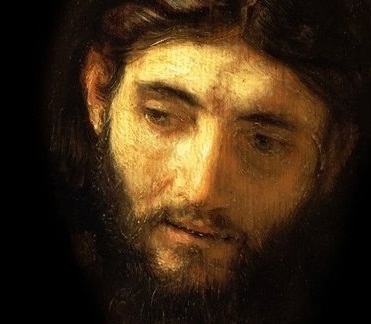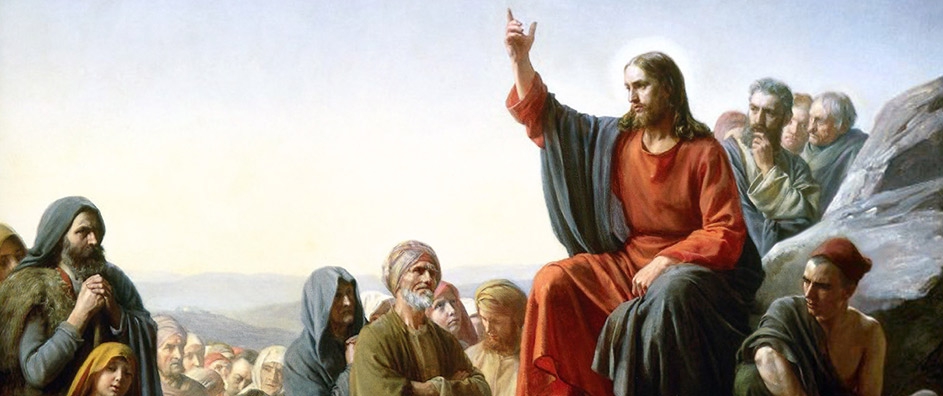The views expressed in our content reflect individual perspectives and do not represent the authoritative views of the Baha'i Faith.
Wherefore I advise that we should first seek His Justice so that when we shall travel thereon, as if on a highway, we shall be able to overtake the True Prophet, not by swiftness of feet, but by good deeds. . . . Be it known to you, therefore, the highway is good discipline and deeds and the travelers of the highway are those who do good things. But the gate is the Prophet and the city is the Kingdom, wherein the Father eternally sits before everyone and makes ready to be seen by those who have pure hearts. Therefore, it should not weary us to travel on the highway, for at the end of the highway there is rest. For even he, the True Prophet, from the beginning of the world hastens us to rest and runs with us to eternity. – The Travels of Peter: The Syriac Clementine Recognitions and Homilies: The First Complete Translation of the Text, by Joseph Glen Gebhardt (Grave Distractions Publications, 2014), pp. 107–108 (Syr. Rec. 2:22).
“Read any good books lately?” “What was the last novel that you’ve read?” These questions are common ice breakers in conversation. It makes for nice small talk, anyway.
As for me, I read a fascinating book lately, the first historical novel in early Christianity, in which the apostle, St. Peter, debates Simon the Magician. In fact, the translation I read is based on the oldest dated ancient manuscript in the world, sometime between the years 411–412 CE.
This oldest manuscript known to antiquity is written in Syriac, a dialect of Aramaic, the language that Jesus and his early followers spoke. Therefore, this Syriac text may well preserve some of the very idioms, expressions, and perhaps teachings current at the time of Jesus.
In the passage quoted above, the figure of St. Peter speaks of the “True Prophet” (referring to Christ) who “from the beginning of the world,” leads us “travelers” on the road (“the highway”) to “the city [which] is the Kingdom, wherein the Father eternally sits before everyone and makes ready to be seen by those who have pure hearts.”
The Baha’i writings also speak of the “true Prophet” in the following passage:
The songs which the bird of thine heart had uttered in its great love for its friends have reached their ears, and moved Me to answer thy questions, and reveal to thee such secrets as I am allowed to unfold. In thine esteemed letter thou hadst inquired which of the Prophets of God should be regarded as superior to others. Know thou assuredly that the essence of all the Prophets of God is one and the same. Their unity is absolute. God, the Creator, saith: There is no distinction whatsoever among the Bearers of My Message. They all have but one purpose; their secret is the same secret. To prefer one in honor to another, to exalt certain ones above the rest, is in no wise to be permitted. Every true Prophet hath regarded His Message as fundamentally the same as the Revelation of every other Prophet gone before Him. – Baha’u’llah, Gleanings From the Writings of Baha’u’llah, pp. 78–79.
 Baha’is view Baha’u’llah’s writings as revelations from God. The passage quoted above is not only among these revelations from God, but directly quotes God: “God, the Creator, saith: . . . Every true Prophet hath regarded His Message as fundamentally the same as the Revelation of every other Prophet gone before Him.”
Baha’is view Baha’u’llah’s writings as revelations from God. The passage quoted above is not only among these revelations from God, but directly quotes God: “God, the Creator, saith: . . . Every true Prophet hath regarded His Message as fundamentally the same as the Revelation of every other Prophet gone before Him.”
The idea of a “true prophet” has a long history in the history of religions. Take, for example, early Jewish Christianity. Among the Jewish Christians of the early church was a sect called the Ebionites (“the Poor”) according to the Church Fathers. Ebionite Christianity has attracted some Baha’i interest, especially by Udo Schaefer, a German Baha’i scholar, who wrote, in The Light Shineth in Darkness: Five Studies in Revelation after Christ, the following statement:
It is worthy of note that there were striking similarities between this Christianity and Islam. Above all in Christology: in the faith of the original community Jesus was the new Moses, the Son of God as ‘testified’ by the adoptive act of baptism. This Christology . . . corresponds completely to that of the Qur’an. The . . . Baha’i, oriented towards the doctrine of cyclically recurring revelation and convinced of the mission of Islam, finds these results of research—in the light of the unity of religions—extremely instructive, because they are a sufficient explanation for the discrepancy between orthodox Church doctrine and the doctrine of the post-Biblical religions, and because they show where the original truth was preserved: not in the pagan-Christian Greater Church based on Paul, but in the Jewish Christianity contemptuously branded as ‘Ebionism’. – Udo Schaefer, The Light Shineth in Darkness: Five Studies in Revelation after Christ, pp. 83–84.
Just one Baha’i scholar’s opinion. This doesn’t represent any official Baha’i position—but definitely does offer an interesting perspective. It’s not meant to disparage the forms of Christianity that exist today (which, generally speaking, comprise the Roman Catholic, Orthodox and Protestant divisions of Christianity). Instead, Udo Schaefer suggests there is more to Christianity than we might think, especially as regards the wide range of beliefs that flourished in the early Church. Some of these beliefs, however, have vanished. The study of Ebionite Christianity interests Baha’is because certain of the Ebionite Christian beliefs seem strikingly similar to Baha’i beliefs.
Whether or not Ebionite Christian teachings preserve the original truth of Christianity is a matter of controversy and will require further investigation. Ultimately, it will be up to the individual who investigates these teachings to determine whether or not they are authentic. This is where The Travels of Peter comes in, because it’s considered a text that preserves the “discourses of Peter.” In other words, The Travels of Peter preserves early Jewish Christian material in literary amber.
You May Also Like
Comments

















Anyways - sorry to prattle on. Look forward to anything else you want to share.
Again thanks so much.